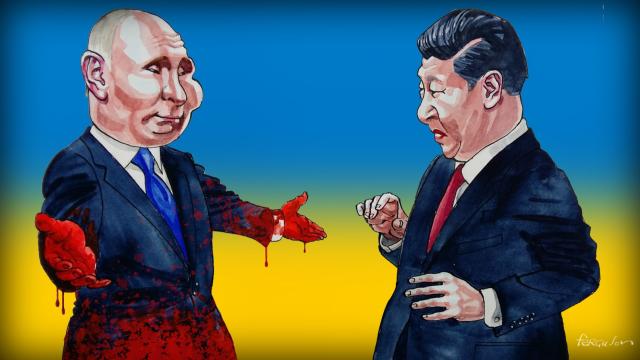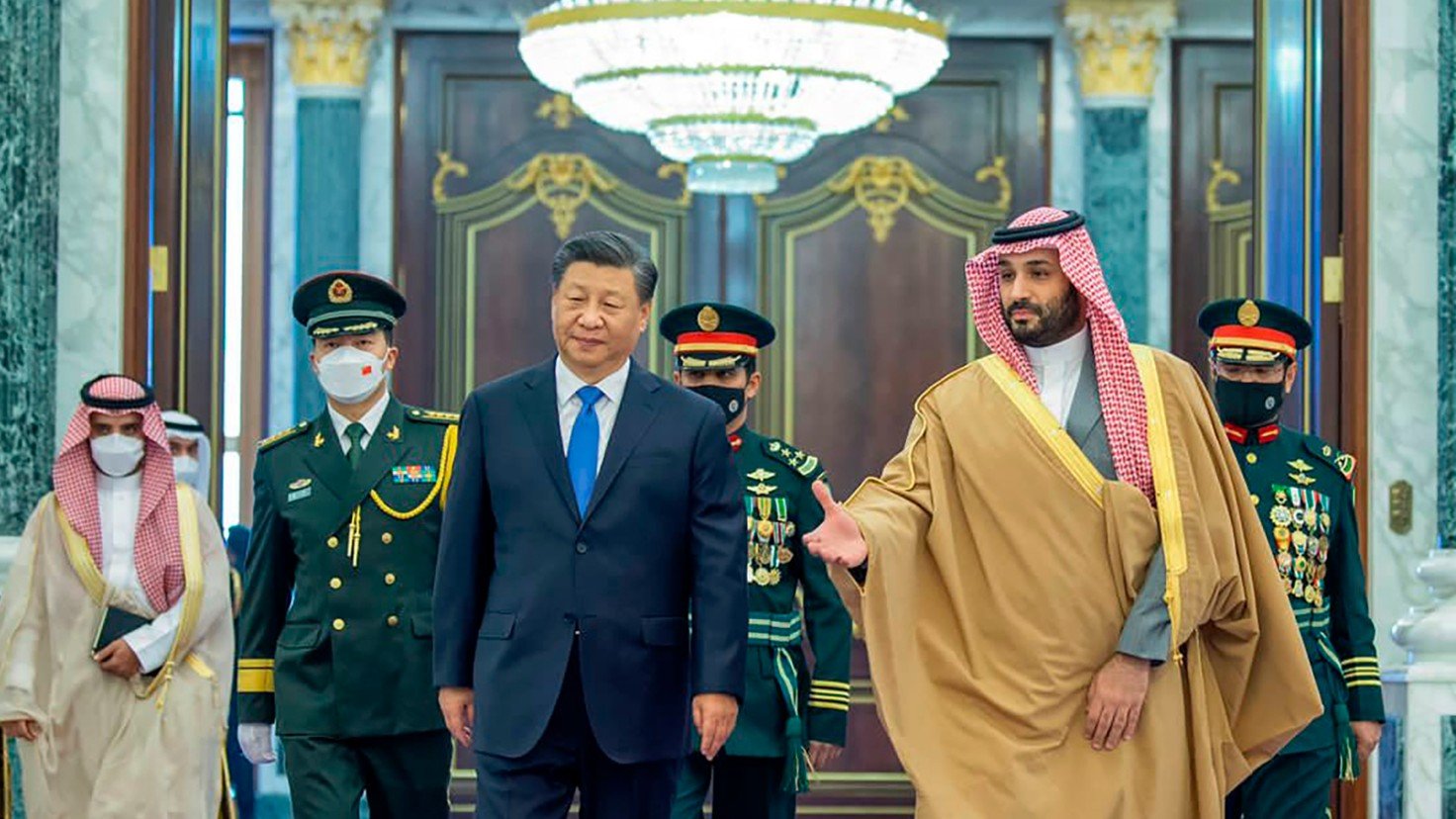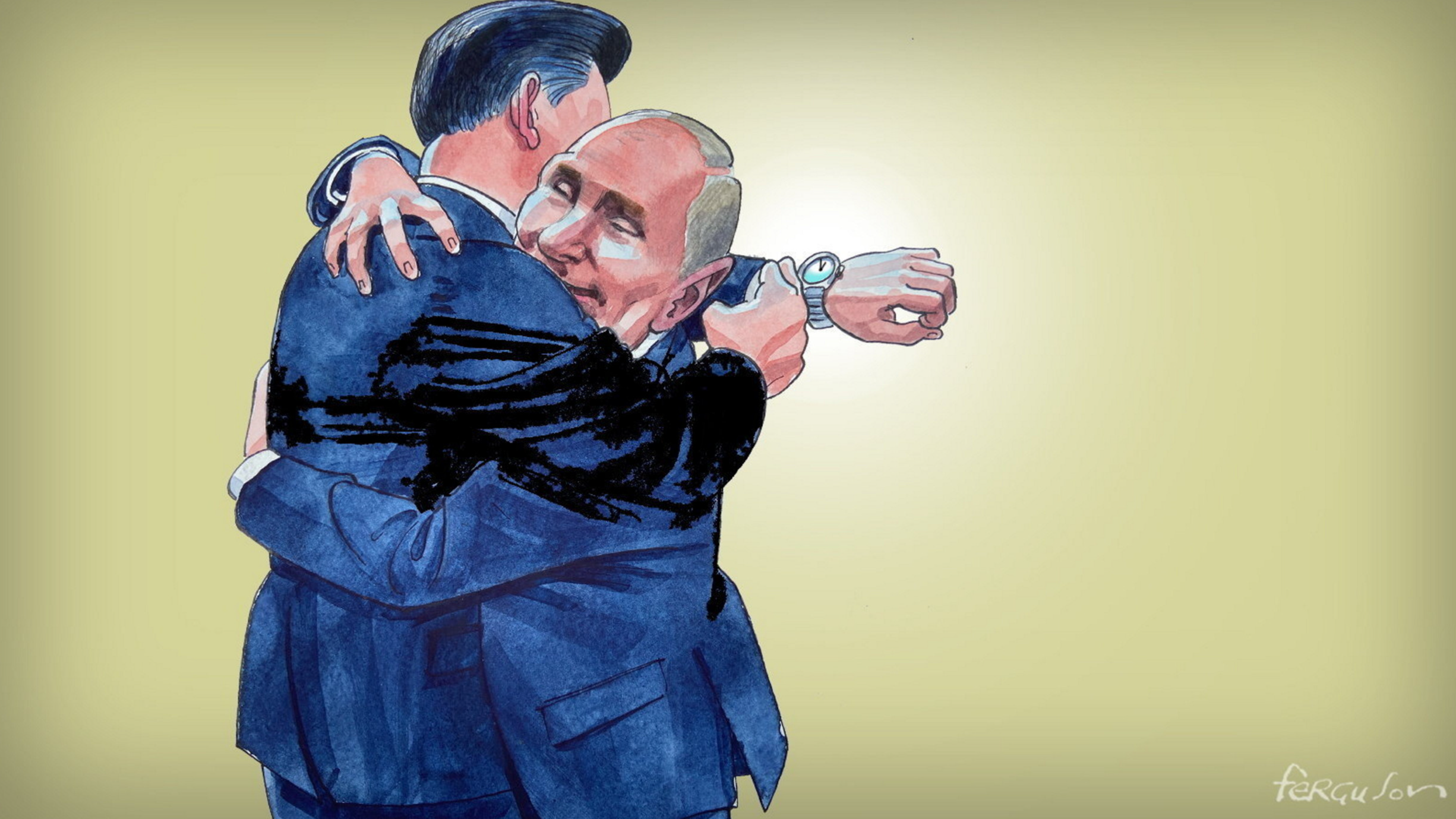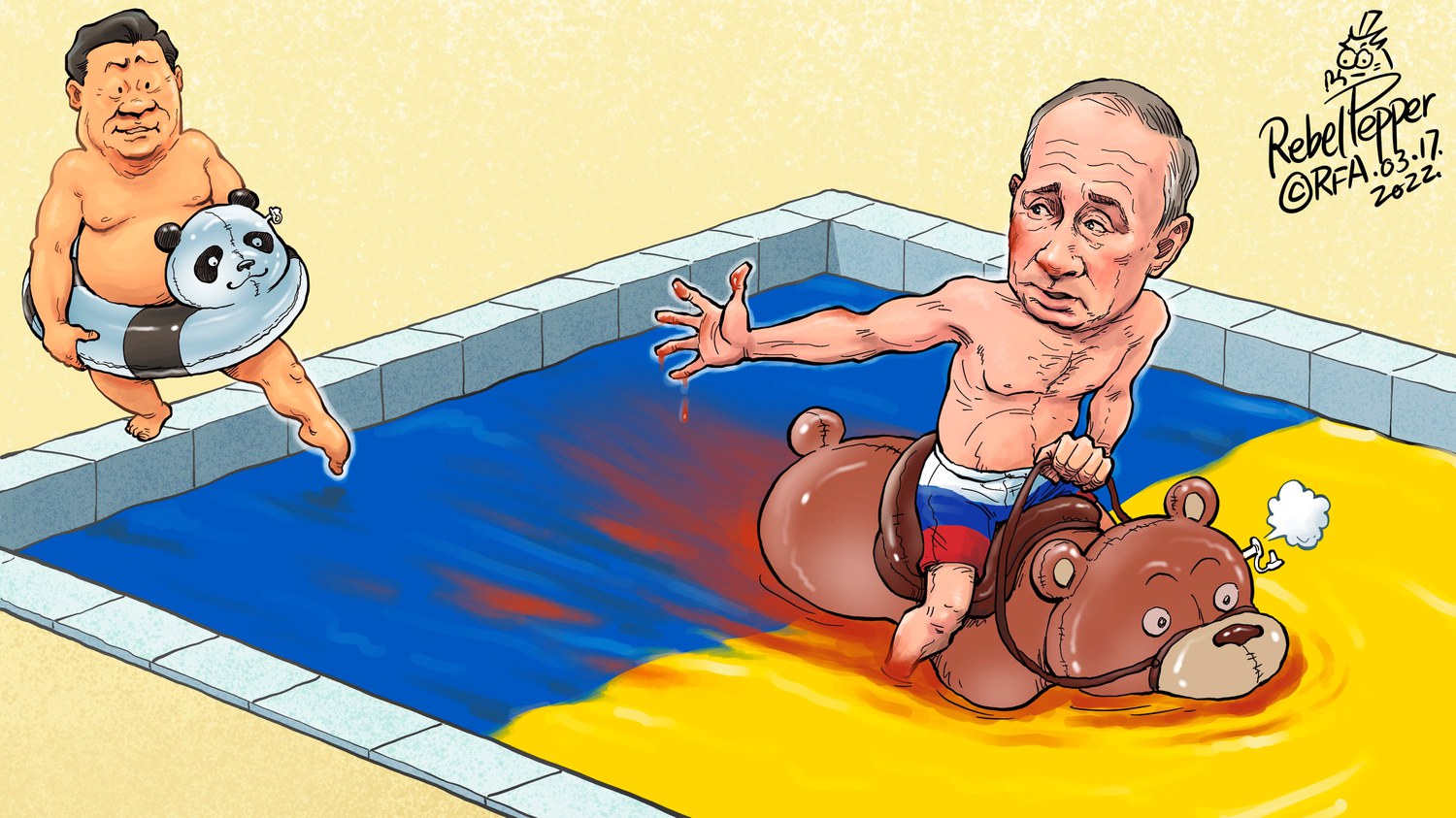
After several days of talks in March, Russian President Vladimir Putin and Chinese President Xi Jinping appear to be closer than ever. It’s widely assumed that with China on his side, Putin’s war in Ukraine won’t come to an end anytime soon, at least not in a way that would benefit Kyiv.
At the summit, Putin notably endorsed Xi’s 12-point plan for peace in Ukraine, even though by all applicable standards he’s directly in violation of the first point of the plan, which pertains to respect for international sovereignty:
“Universally recognized international law, including the principles and purposes of the United Nations charter, must be strictly observed,” the plan, which is posted on a Chinese government website, reads. “The sovereignty, independence, and territorial dignity of all countries must be effectively upheld.”
Solidifying relations with a major international power player like China is a significant positive development for Putin, particularly given the International Criminal Court’s recent indictment of Putin for human rights violations and given the fact that US Secretary of State Antony Blinken has called on countries that belong to the ICC to arrest Putin if he sets foot within their borders. But the Putin/Xi meeting signifies more than a few worrisome developments for the West, and for democracy in general, that American media has mentioned only in passing, if at all.
BRICS expansion and China’s big play in the Middle East
It’s likely that, along with the Ukraine war, Xi and Putin discussed the expansion of the BRICS (Brazil, Russia, India, China, South Africa) economic coalition to include the potential membership of several Middle Eastern countries.
Xi Jinping has lately been fashioning himself as a grand statesman, and his 12-point peace plan in Ukraine – as well as the recent meeting with Putin in the midst of Russia’s widely condemned war against its neighbor – is merely his latest effort at high-stakes international diplomacy. By all accounts, he’s done remarkably well so far this year.
Earlier his year, Xi brokered a tentative diplomatic agreement between Iran and Saudi Arabia. Both countries have been at loggerheads since 2016, when the Saudis killed a prominent Shiite cleric and Iran retaliated by burning the Saudi embassy in Tehran. Writing for Energy Intelligence, veteran US Marine Corps intelligence officer Scott Ritter wrote that the new Iran-Saudi Arabia peace agreement could “radically transform regional and global geopolitics,” particularly when it comes to economics:
Significantly, the deal also ushers in a potential new era of Chinese economic involvement with the two most important Mideast Gulf nations. If the deal is implemented, China’s Belt and Road Initiative could become an even more integral part of the social and economic futures of both Saudi Arabia and Iran. If anything defines a regional pivot away from the West and toward the East, this is it.
China’s role in restoring diplomatic relations between two of the largest economic powers in the Middle East will no doubt prove fortuitous for BRICS. According to Ritter, BRICS countries already outpace the combined GDP of the G7 coalition (US, Canada, UK, France, Germany, Italy, Japan) when adjusting for purchasing power parity. Iran and Saudi Arabia are hoping to join BRICS, along with other emerging economies like Argentina and Egypt.
With China restoring diplomatic relations between Iran and Saudi Arabia, their membership in BRICS could become official much sooner than imagined. BRICS’ expansion could prove harmful to the US dollar’s dominance in global markets, and in the long term, to the West’s geopolitical influence.
The end of the petrodollar could come sooner rather than later
In 1974, just a few years after President Richard Nixon blew up the Bretton Woods agreement – in which foreign governments could exchange US dollars for gold – the US effectively replaced the dollar’s gold backing with oil backing: In exchange for the US’ promise to uphold and protect the Saudi royal family’s political power, the Saudis agreed to trade oil exclusively in US dollars, hence the term “petrodollar.” And since Saudi Arabia is a leading member of the Organization of Petroleum Exporting Countries (OPEC), this meant the US dollar would be used as the standard reserve currency for oil trading, cementing the petrodollar for decades.
The petrodollar could soon come to an end, however, with Saudi Arabia signaling at the World Economic Forum’s summit in Davos, Switzerland in January that it is entertaining the idea of trading in currencies other than the US dollar.
“There are no issues with discussing how we settle our trade arrangements, whether it is in the US dollar, whether it is the euro, whether it is the Saudi riyal,” Saudi Finance Minister Mohammed Al-Jadaan said in an interview with Bloomberg.
Saudi Arabia already hinted last year that it was considering trading oil in the Chinese yuan, so Jadaan’s statement at Davos could indicate a temperature change in favor of China. And in the context of Saudi Arabia’s potential BRICS membership and warmer diplomatic relations with Iran, it seems evident that Xi is intent on ending the petrodollar and undermining the US dollar’s dominance as the global reserve currency.
It’s important to note that even if that’s the goal, the dollar’s decline likely won’t happen anytime soon. According to a recent Yahoo News report, the dollar makes up nearly 60% of estimated global currency reserves, whereas the euro makes up around 20%. China’s currency, for comparison, makes up just under 3% of global reserves.
“China could expand its market share by twenty-fold and still lag the US dollar by a wide margin,” Yahoo reported.
Still, China’s moves in the Middle East and apparent endorsement of Putin’s imperialist goals in Ukraine necessitate a response from the West. Not out of America’s selfish desire to preserve US hegemony in global affairs, but because the strategic moves of authoritarian regimes to expand their influence can shake the foundations of democracy around the world.
(This is the first half of a two-part series analyzing geopolitical events in the wake of the Xi Jinping/Vladimir Putin summit.Stay tuned for Part II of this series, which proposes solutions that the US and western democracies can do in response to the rise of authoritarianism.)
Carl Gibson is an independent journalist and columnist whose work has been published in CNN, The Guardian, The Washington Post, The Houston Chronicle, Barron’s, Business Insider, and The Independent, among others. Follow him on Mastodon @crgibs@mastodon.social.


















